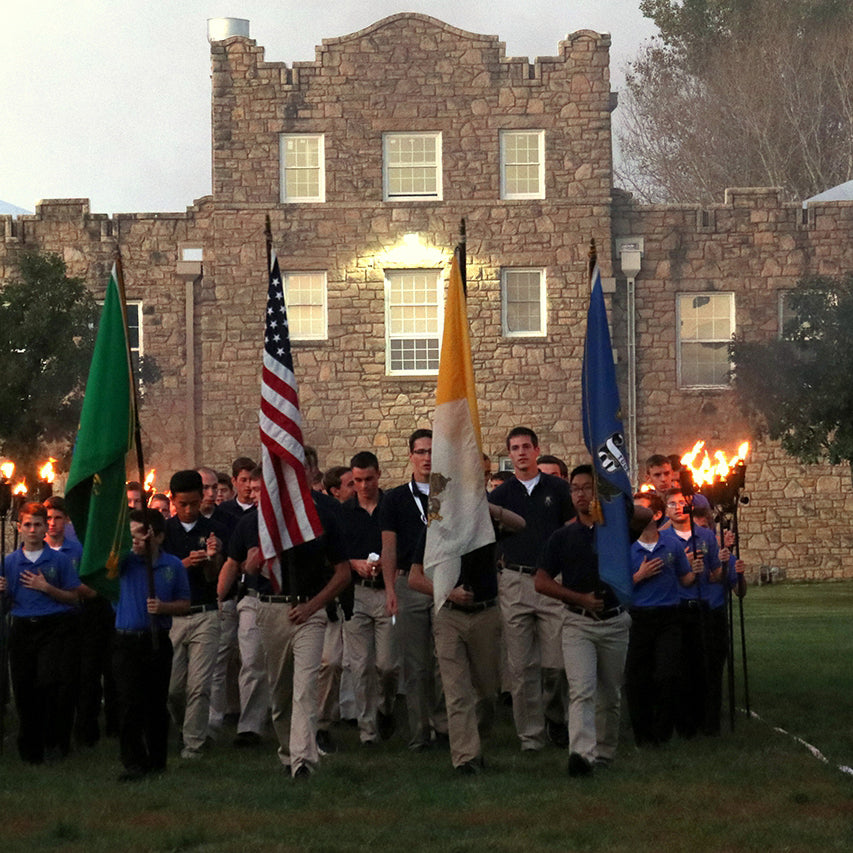
Harriet Murphy, a 53-year-old Brit and former professor of German Studies at the University of Warrwick. It takes a narrow view of “liberty” and bemoans Modernism’s so-called “over-emphasis on the natural power and dignity of man.” The society is committed to the Latin mass - and staunchly opposes interfaith cooperation. Today, SSPX describes itself as an “international priestly society” and Catholicism’s lone defender of God’s authentic word. SSPX continued to minister, but without official canonical status.

Against the Pope’s orders, Lefebvre consecrated four bishops - leading the Vatican to excommunicate all five. By 1976, after some tousling with the papacy, Lefebvre was officially stripped of his holy orders. His movement grew, and eventually formalized as SSPX. Lefebvre opened his own anti-Modernist seminary (bishops called it the “wildcat seminary”) in Écône, Switzerland. Lefebvre had always flirted with the far right (he supported Marshal Pétain’s Nazi-collaborating Vichy regime during WWII) and so it was no surprise when he emerged at the helm of Council challengers. (Congregants would now have some idea of what was being preached at them.)ĭuring this time, one Archbishop Marcel Lefebvre grew deeply displeased. Critically, it also ditched the traditional Latin Mass - in favor of a mass conducted in vernacular tongues. Vatican II tidied up Church government and encouraged interfaith friendship. And indeed, the Council defined Catholicism as we now know it.

Attended by more than 2,500 bishops, the Second Vatican Council (or Vatican II) was meant to reconcile the Roman Catholic Church with the modern world. In 1962, the Church opened its first ecumenical council in almost 100 years.

“The history of the SSPX, like the history of the Catholic Church, is a beautiful mystery,” reads the official website of SSPX. Meanwhile, there are whispers of a formal “schism” between the Vatican and SSPX followers - and Erich Priebke’s body has been buried in an anonymous grave. As recently as January, Archbishop Augustine Di Noia, one of Rome’s top dogs, penned a letter to Society priests, pleading for “reconciliation and healing.” Though a round of official negotiations broke down last year, the Holy See still supports a Pontifical Commission called Ecclesia Dei, which has tried to lead the SSPX flock back into the fold. The Anti-Defamation League describes SSPX as “mired in anti-Semitism.” The Southern Poverty Law Center ups the ante, calling “radical traditionalist Catholics” (including, prominently, SSPX members) “the single largest group of hard-core anti-Semites in America.”Īnd yet, the Vatican wants to make amends. In the towns and cities where SSPX communities popped up (SSPX claims almost half a million members, hundreds of priests, and a presence on every continent, though the numbers cannot be verified), the group is best known for its practice of the old Tridentine Mass: conducted in Latin, the priest’s back to his congregation, and heavy on the Gregorian chant.Įlsewhere, SSPX is known for other things: like its Holocaust-denying bishop its anti-Semitic conspiracy mongering (an SSPX leader recently dubbed Jews and Modernists “enemies of the Church”) its rejection of interfaith dialogue and its insistence that, since the 1960s, the Vatican has taken a turn for the worse. Born in reaction to the Church’s modernizing reforms of the ’60s, the Society soon emerged as a stronghold of the way Catholicism used to be. Pius X (SSPX) is a fervently traditionalist Catholic sect: a Vatican breakaway with no official Church status, and the cause of much malcontent in Rome.

The corpse was in limbo, until the Society of St. Each locale worried that Priebke’s gravesite could become a shrine for roaming Third Reich nostalgics. Priebke had wanted a public funeral and Catholic burial - in contempt of the standard practice of cremating Nazi war criminals and scattering their ashes to the wind, or tucking them out of sight.īut the Diocese of Rome refused to bury him - as did Priebke’s hometown in Germany and the foreign minister of Argentina, where Priebke (who died unrepentant) lived after fleeing his war-riddled continent. Former SS captain Erich Priebke died under house arrest on Oct. Last month, a 100-year-old convicted Nazi war criminal died in Italy and nobody wanted to bury him. This story has been corrected since it was originally published.


 0 kommentar(er)
0 kommentar(er)
